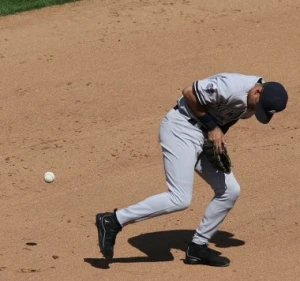I’m taking over scoring our book this year. When I scored for Rec teams, I was always kind to the defense — errors were reserved for dropped fly balls or balls thrown high over heads. But I’ve realized that might not be fair to pitchers or to hold players accountable. So I was wondering how you think the best way to score a 16u B team is. Should a bobbled ball be an error? Or a misplayed fly? I don’t want to make the girls feel bad, but I also want to give an accurate description of the game.
Any thoughts?
Any thoughts?







